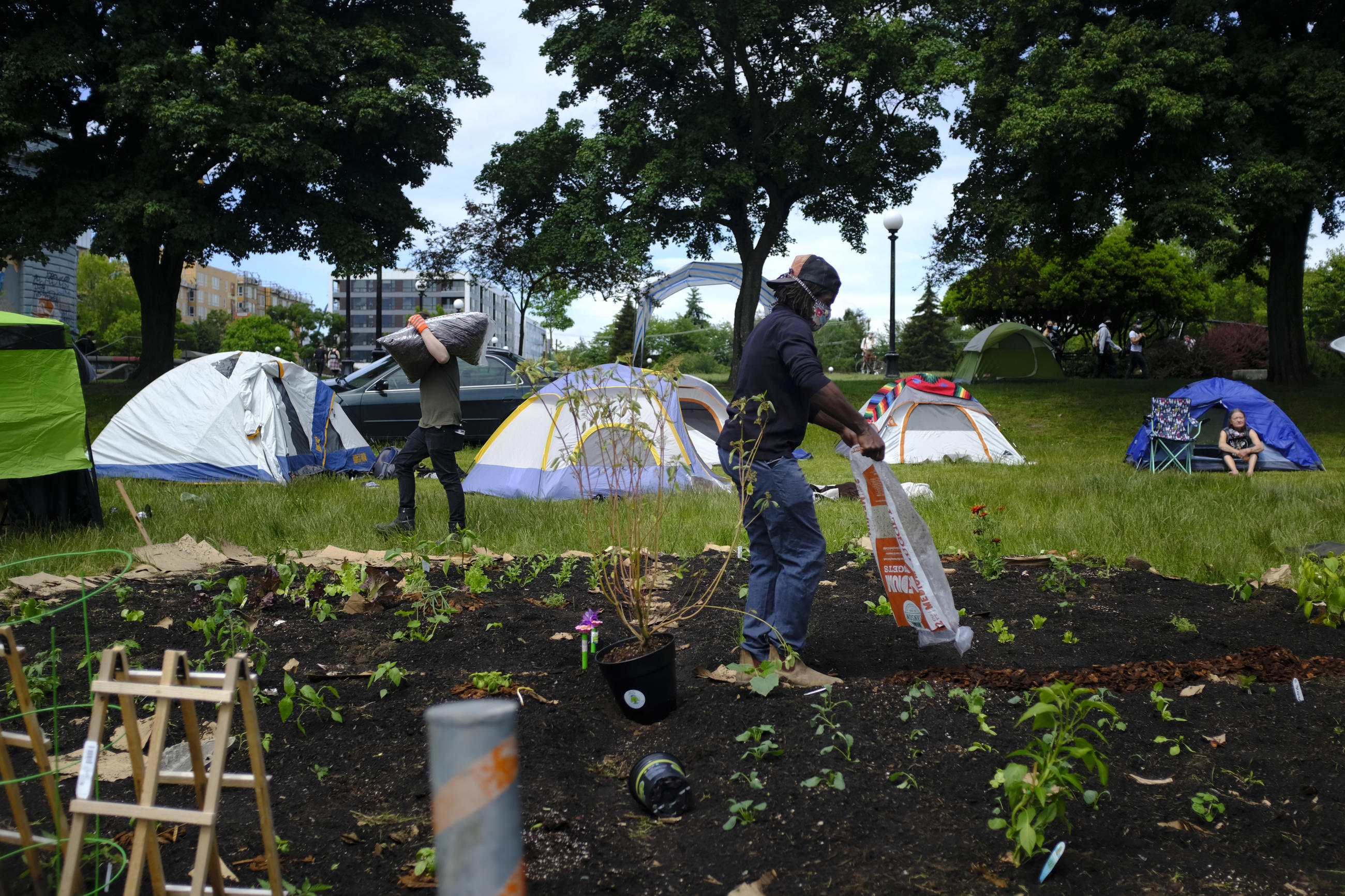
A community garden in Capitol Hill’s Cal Anderson Park that was established as part of Seattle’s 2020 Black Lives Matter protests was removed by the city’s Parks and Recreation Department Wednesday.
The city, which did not sanction the garden, cited “public health and public safety issues” including vandalism of the park’s public bathrooms. City crews also removed tent encampments in and around the park.
Black Lives Memorial Garden was created by participants of the 2020 Capitol Hill Occupied Protest (CHOP), an occupation protest against police brutality and racial injustice that took over several city blocks including Cal Anderson Park. CHOP was largely cleared from the streets and sidewalks after about a month of occupation, though marches and rallies continued in the neighborhood and the garden remained.
Parks officials said they had been negotiating with organizers Black Star Farmers Collective to find a new location for several months before dismantling the garden on Wednesday.
Supporters, who posted a petition to save the garden when plans emerged in October to remove it, called the site “an ongoing, occupied protest space started in 2020 by people taking land back and organizing against police violence.”
“We see this threat for what it is - an attempt to suppress BIPOC-led movements for liberation and decolonization,” petition organizers said on Change.org. Community group Cal Anderson Park Alliance also opposed clearing the garden from the park, according to the Capitol Hill Seattle Blog.
However, other community leaders, including leadership in the state and local NAACP, relatives of Charleena Lyles and Che Taylor, who were killed by Seattle police, and Seattle City Councilmember-elect Joy Hollingsworth, backed the removal of the garden on several grounds, including lack of public safety and accusing organizers of co-opting the call for police reform.
“It’s bewildering to see a memorial meant to address specific atrocities against the African-American community being overshadowed by narratives and causes unrelated to its intended purpose,” said Jonathan Jones-Thomas, environmental climate justice Chairman of NAACP-WA, in the parks department prepared statement. “While acknowledging the importance of addressing wrongs across all communities, the African-American community’s memorial is unfairly bearing the weight of broader issues.”
